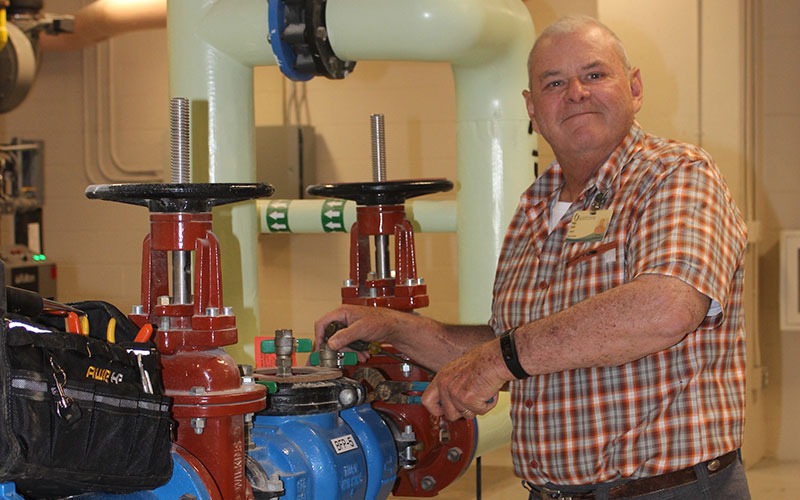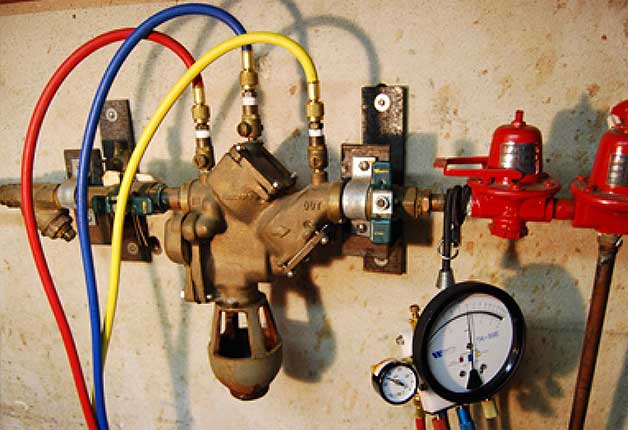Should I Check for Backflow in My Water
Should I Check for Backflow in My Water
Blog Article
This article down below on the subject of Is backflow testing necessary? is immensely remarkable. You should see for yourself.

Yes, you need to backflow test your house's water system to make certain that the water is free of toxins and also unsafe levels of chemicals. Because of the devices called for as well as area for error, you ought to not attempt to do backflow testing on your own. We advise that you call a professional plumber every couple of years to check your water.
What is Heartburn?
Simply put, backflow is when water moves upwards-- the contrary instructions in the plumbing system. This is additionally called "backpressure." When the water relocates this instructions, it can blend with harmful contaminants and present a danger.
What Triggers Heartburn?
A normal cause of heartburn is a loss of water pressure that triggers the water to siphon back into the water supply. After some time, there is a loss in water pressure and also the pipe begins to draw the water back right into the water supply. As you can think of, there are now chemicals from the paint that are going into the water supply, potentially posturing a risk.
Heartburn Testing is Required by Law in Specific Cities
Relying on where you live, you could actually be required by law to backflow examination your law. Iowa City maintains a document of all buildings offered by the city's water supply. The city requires that certain "high-hazard" centers undertake backflow testing. In many cases, residential properties such as homes and apartment buildings are affected.
You Can Avoid Heartburn
Hazardous backflow is quickly preventable if you have a specialist plumber set up a backflow device. The plumber will likewise evaluate for backflow and establish if there is an active hazard. The major purpose of a heartburn tool is to avoid water from moving in reverse into your water system. Plumbing technicians mount the tool on the pipes in your residence to make sure that the water just moves in the proper instructions.
Heartburn Can Impact Both You and Your City
Many cities develop backflow standards since unsafe backflow can influence the general public water in addition to a single structure. Luckily, modern-day cities have backflow devices in place that secure the supply of water that comes from many residences and also commercial properties. The real hazard comes from watering systems, which can harm the water system with toxic fertilizers, manure, and other chemicals.
Call a Plumber to Check for Backflow Prior To It is Far too late
A plumbing business can swiftly evaluate your residence's water to establish if there are any hazardous chemical levels. And also if you do find that your water has high degrees of contaminants, a plumber can quickly mount a heartburn prevention tool.
Yes, you need to backflow examination your home's water supply to make certain that the water is free of toxic substances and also damaging degrees of chemicals. A regular reason of heartburn is a loss of water pressure that creates the water to siphon back into the water supply. After some time, there is a loss in water pressure and the pipe begins to suck the water back into the water supply. The primary objective of a heartburn device is to stop water from moving backward right into your water supply. Many cities establish heartburn guidelines since harmful heartburn can impact the public water supply in enhancement to a single structure.
WHY DOES BACKFLOW TESTING NEED TO BE DONE EVERY YEAR
What Is Backflow?
Toxic gas backing up into a building is one example of potential backflow issues, but backflow can occur in many other ways.
Backflow is generally referred to as the reversal of a liquid or gas in a plumbing system.
Most issues for the public occur with backflow resulting in contaminated drinking water. If you look up backflow issues online you’ll probably find references to “potable” water. That means drinking water.
There have been backflow issues in the past with drinking water. Chemicals, sewage and other contaminants have found their way into drinking water causing health issues for those that count on the fresh water.
What Causes Backflow?
In a residence or commercial building water generally flows one way. This normal flow is usually driven by consistent pressure in the water and waste system.
Anything that changes the normal pressure in the system can lead to backflow.
Fire hydrant use or malfunction can reverse the normal pressure in the system on a city line, but backflow can occur in a number of different ways.
Sometimes backpressure might be caused by someone using a garden hose and submerging the end of the hose in a pool of liquid. If pressure is lost the flow could reverse and contaminants could be released into the drinking water.
Anytime there is a connection between contaminants and the drinking water there is potential for a backflow issue. Sometimes these connections are not immediately obvious like the garden hose connecting to a building’s drinking water supply.
Backflow Regulations
The Environmental Protection Agency (EPA) provides guidelines and regulations for state and local governments regarding backflow. State and local governments also have their own guidelines and regulations for backflow prevention.
Arizona has its own backflow regulations.
Due to issues with backflow in the past, regulations require backflow preventer devices to be used in nearly all residential and commercial buildings.
A backflow preventer is a device that prevents backflow as cross-connection points where potential backflow issues may occur.
While backflow is not a common occurrence, preventers are in place to make sure there is no contamination should something malfunction or go wrong with a building’s water supply.

As a passionate reader about Is backflow testing necessary?, I was thinking sharing that portion was really helpful. Do you know about another person who is intrigued by the topic? Feel free to share it. I recognize the value of reading our article about Backflow Prevention.
Drainage issues? Inform. Report this page